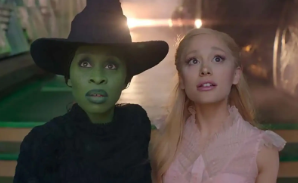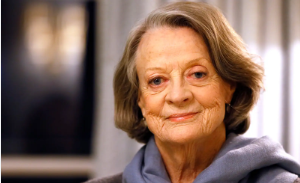In 2008, Suzanne Collins published the first book in The Hunger Games series, which transpired the first flame that would turn the series into a global phenomenon. Each of the four books has topped the New York Times bestseller list upon their release. Before the first movie adaptation was even released, the series had sold over 26 million copies. Many authors and movies have dealt with dystopian themes like The Hunger Games did but haven’t been met with the same magnitude of success. That’s not to say that other series aren’t just as good, but Veronica Roth’s Divergent trilogy hasn’t had the same impact or longevity that the world of Panem has. The prequel to The Hunger Games was released in 2020 and it brought back fans of the original trilogy. It takes a strong relationship with the readers to successfully revive a world that was introduced over a decade ago. So that begs the question, why did The Hunger Games resonate so well with audiences? And why does it continue to be a fan-favorite series?
Even through all of its darkness and gore, the world of Panem is beloved by fans. Collins created a confounding universe in which the wealthy use their power and omnipotence to control the rest. Propaganda is used to curate perfect lies and cover-up perfect crimes. Since its release, it has drawn in audiences like a magnet. The society that was first built back in 2008 holds up a mirror to society. Like it or not, the similarities between Panem and the world today can be jarring. Though Panem is a hyperbolic version of the world, it provides an engaging social commentary. The Hunger Games perfectly shows how mistrust in the government can be lethal to a society. Regardless of where one stands on the political spectrum, there’s no doubt that as political tensions have risen in the US and around the world, mistrust has grown. The games also perfectly demonstrate the celebrity worship culture in today’s world. Before the games, the tributes are decorated and made into celebrities to make people root for them. The games are then televised and the nation actively watches kids murder each other in the arena. It’s really interesting to think about how people would react in real life. The truth of the matter is that people would be just as engaged as the citizens of Panem are. Today, celebrity culture is huge and has cult-like followings. Without a doubt, people would absolutely engage with the pomp and circumstance that the games bring about. In fact, some of Collins’s inspiration for the series is rooted in celebrity culture.
“I was flipping through the channels one night between reality television programs and actual footage of the Iraq War when the idea came to me,” Collins said in an interview with The New York Times in October 2018.
Social commentary can be very interesting for audiences to watch because it provides a different perspective on everyday issues. Readers and viewers can identify parts of the stories that they feel are similar to the world they live in. The social commentary of The Hunger Games can make people feel much less alone in the current times. Seeing worlds in which the circumstances are similar yet drastically heightened can allow the viewers to feel a sense of relief, knowing that their lives could be different. Additionally, having a heroine like Katniss Everdeen can also give the viewer hope as they watch change develop. It can inspire one to invoke their own change as well.
As aforementioned, Katniss Everdeen is a spark of hope for the people of Panem but also for the real world. However, there are many heroes in dystopian stories but still Katniss seems to stand out. Unlike many protagonists, Katniss is the antithesis of what a hero should be. She isn’t trained to be a leader and before the games, she doesn’t dream of being one. However, as she’s conditioned in the real world, she’s inspired to be the change. Her story resonates so strongly with audiences because, unlike others, Katniss is just a regular person who has to transform into a different person due to her circumstances. She feels very real, as she isn’t always perfect. She’s argumentative, poor, and strong-willed and with the female demographic specifically, I think that Katniss makes them feel seen. Viewers can see themselves in Katniss which makes them want to know her more.
Other character arcs within Panem can also feel quite relatable to audiences. The love triangle between Gale, Peeta, and Katniss is a very real scenario. Though the circumstances are abstract, tensions always bring about obstacles in interpersonal relationships. In the new novel and movie, viewers were especially drawn to the complexity of the relationship between Coriolanus Snow and Lucy Gray. Corio is on the rise to power which conflicts with his love for Lucy. It captivates audiences because they want to know how it will play out. Audiences and young people in particular love to picture themselves in fantastical situations and The Hunger Games is the perfect setting for viewers to do so as they already see themselves in so many different characters. The relatability factor is what separates the series because when audience members feel seen, it makes them feel a part of the story.
The sequel to the first trilogy, The Ballad Of Songbirds And Snakes, is very interesting in the fact that it has done so well but is based on a story told over a decade ago. Many people discounted the new release as a mere carbon copy and cash grab. However, the fans of the first trilogy have been loving the novel and its film adaptation. The first novels built such a terrifyingly beautiful world but it also left fans with so many questions. Panem’s complexity and introspection left people questioning its origins and many details of the world. The Ballad Of Songbirds And Snakes answered so many of the questions left by fans as it shows how President Snow became the man he is. However, there are still many questions to be answered and that’s why the prequel is doing so well. The mystery and ambiguity surrounding its ending leave the demand for further perspectives into the world.
Without negating any other intriguing dystopian worlds, The Hunger Games truly is an outlier among its counterparts. It does something that most other series fail to do. The series is multifaceted and wears many different hats. Panem incorporates technology into the wickedness but also keeps everyday lives realistic. Unlike series like Divergent or The Maze Runner, it’s not too futuristic to the point where audiences cannot identify any parts of real life. The characters in The Hunger Games went through deep emotional shifts and growth. It was never rushed or hurried. In other series, some character arcs are traded for more action. Collins and the film directors did a fantastic job balancing the action and character journeys, which made for the most entertaining story possible.
Overall, The Hunger Games series resonates very well with audiences for a myriad of reasons. Of course, the story holds its own and the writing is phenomenal. However, the contributing third-party factors help draw fans in. The social commentary provided is terrifyingly interesting to watch. The reflection of today’s world is funny due to its hyperbolic nature. Yet, it can also signal a paradigm shift in our reality. For me, I think the trait that truly brings home success is the relatability of the characters. They feel like people who would live in our everyday societies. The ordinary becomes extraordinary. That arc inspires people to grow themselves. And of course, the love arcs within provide very exciting debates. But of course, any sane person believes both Gale and Peeta aren’t exciting for Katniss. All of the success comes down to the brilliance of Collins. She carefully crafts the world of Panem, telling the audience just enough to capture their attention, while simultaneously leaving the ambiguity that leaves people wanting more, even a decade later.








